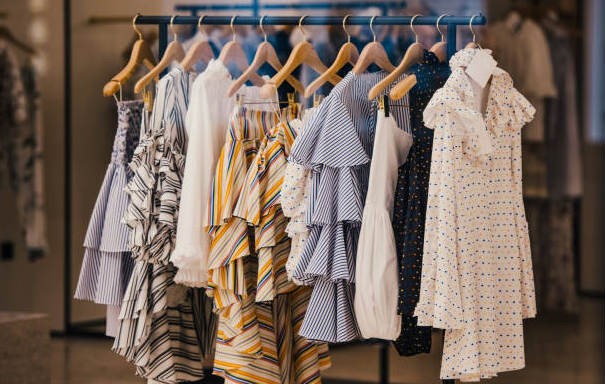Women’s Clothing: A Reflection of Type, Culture, and Empowerment
Women’s Clothing: A Reflection of Type, Culture, and Empowerment
Blog Article
Women's clothing has always been an essential aspect of identity, self-expression, and social evolution. In the past, the fashion industry has developed to adapt to changes in social standards, personal preferences and advances in technology. Today, the diversity in female clothing is incredible and caters to any requirement, from everyday convenience to formal celebrations. From traditional, timeless clothes to cutting-edge contemporary styles, the choices available to women reflect their multifaceted roles within the modern world. Fashion is more than simply clothing. It is an expression of the individuality of a person, their values and aspirations.
The story of clothing worn by women is a direct reflection of changes in society and the values of culture. In ancient civilizations, clothing typically reflected status. It was adorned with intricate designs and rare fabrics that were reserved for the royal or most elite. In time, as society changed and women's clothing changed and roles, changing according to new norms and requirements. The Victorian era emphasized modesty with extravagant gowns. The 1920s ' flapper dresses represented freedom and rebel. Each era brought unique styles that mirrored the values and struggles of the time. Modern fashion continues this tradition, blending historical influences with modern fashions to make a fusion of past and current, highlighting the complexity of modern women's lives.
Cultural influences have played a significant impact on the fashion of women all over the globe. The traditional attire of the saree from India and the hanbok in Korea and the cheongsam in China is a testament to the rich tradition and craftmanship of each area. These garments are not merely practical; they tell the stories of their owners, as well as values and a deep connection to the past. Today, these cultural elements are often blended with contemporary styles to produce styles that honor tradition but also embrace new ideas. This amalgamation of old and contemporary fashions can allow women to celebrate their heritage while staying in tune with global trends in fashion, creating an appreciation for pride and personal style.
Sustainability's role in the fashion industry for women has increased significantly in recent years, with the majority of women putting emphasis on environmentally conscious clothing choices. This shift is driven by an increasing awareness of the impact on the environment of fashion trends and an increasing desire to adopt better ethical practices in the fashion industry. Fashion-conscious women are embracing clothes made from organic products, recycled fabrics, and natural dyes. Fashion brands have responded with sustainable lines that focus on transparency, fair trade and also reducing the amount of consumption. Upcycling and thrifting has also been gaining popularity and offer women new ways to design the clothes they wear while decreasing their carbon footprint. This conscious approach to fashion has transformed the fashion industry, empowering women to make choices that align with their values. To acquire more information kindly look at Pavine
The empowerment of women through fashion has been a frequent topic throughout the history of mankind. Fashion has often been used to challenge social norms and redefining gender roles. As an example, the use of women's trousers during the first half of the 20th century was a sign of a movement towards gender equality and freedom. The trend towards body-positive clothing and gender-neutral sizing enables women from all types and sizes to feel represented and confident. Fashion has evolved into a means to express oneself, which allows women to show their true self and celebrate diversity. make bold statements about their beliefs and identity.
Clothing for women goes beyond than just a piece of fabric or design. It's an expression of history as well as individuality, culture and the advancement of. From old-fashioned traditions to the latest advancements, it's evolved to reflect ever-changing gender roles and expectations of women. Fashion for women today embraces diversity, sustainability, and self-expression. It offers unlimited opportunities for creativity and self-confidence. While fashion is constantly evolving to changing trends and social shifts, it's a dynamic and integral aspect of women's lives. Be it through heritage-based fashion as well as sustainable fashions or bold assertions, women's clothing continues to empower and inspire, celebrating the uniqueness of each individual.